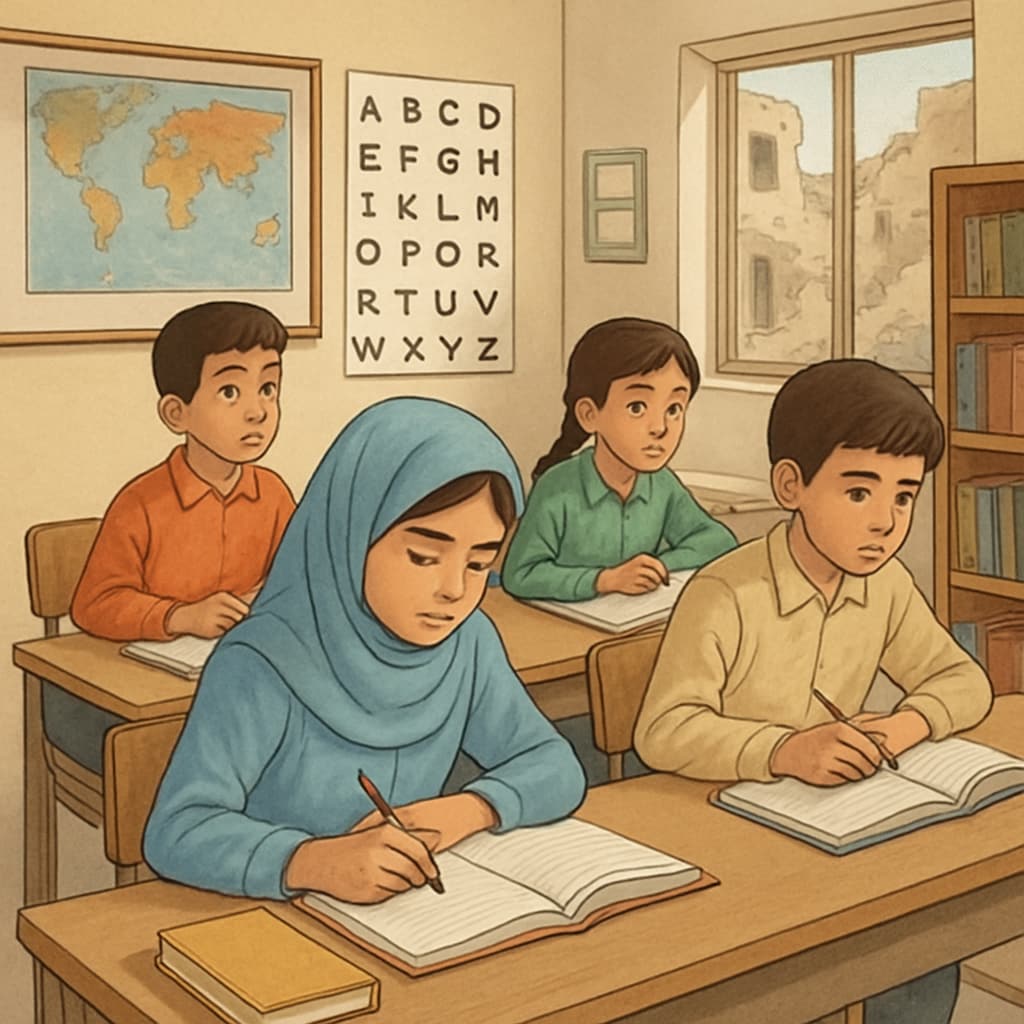The restoration of the education system in Gaza is a critical step toward societal recovery after years of conflict. Addressing the need for a comprehensive curriculum that balances academic subjects and emotional well-being is essential for children in Gaza’s public schools. Effective curriculum planning must consider the unique challenges of the region, including psychological trauma, infrastructure limitations, and cultural sensitivity. This article delves into the complexities of rebuilding Gaza’s education system and offers strategies for creating a stable, inclusive, and future-focused educational framework.

Challenges in Developing a Curriculum for Gaza
The process of curriculum planning in Gaza faces several unique hurdles. First, the prolonged conflict has left physical infrastructure in ruins, with many schools destroyed or severely damaged. Teachers and educational professionals often lack access to adequate resources and training. Furthermore, children in Gaza frequently experience psychological trauma, which impacts their ability to learn effectively. Addressing these factors requires a curriculum that goes beyond academics to include emotional and social support.
Another challenge is ensuring cultural sensitivity in the curriculum. As a region with deep historical and cultural roots, Gaza’s education system must preserve local traditions while preparing students for global opportunities. Balancing these priorities requires collaboration among educators, policymakers, and community leaders.
Strategies for Effective Curriculum Planning
To overcome these challenges, curriculum planners must adopt innovative and inclusive strategies. Here are some key approaches:
- Integrating trauma-informed teaching: Incorporate psychological support into the curriculum to help children cope with the effects of conflict.
- Focus on rebuilding infrastructure: Allocate resources to restore classrooms, libraries, and laboratories, enabling a conducive learning environment.
- Teacher training programs: Offer professional development for teachers, emphasizing modern teaching techniques and cultural sensitivity.
- Community involvement: Engage parents and local leaders in curriculum development to ensure it aligns with the region’s needs and values.
- Future-oriented education: Include STEM (Science, Technology, Engineering, Mathematics) subjects and digital literacy to prepare students for global opportunities.

Building a Stable and Inclusive Education Framework
A stable education framework is essential to empower Gaza’s youth and foster long-term societal recovery. This framework should emphasize inclusivity, ensuring that children from different socioeconomic backgrounds have equal access to education. In addition, promoting gender equality within schools is crucial for creating a balanced society.
International collaboration can play a pivotal role in this effort. Organizations such as UNICEF and UNESCO have experience in supporting education systems in post-conflict regions. Their expertise can help Gaza implement best practices for curriculum development and teacher training.
Moreover, leveraging technology can bridge gaps in resources. Online learning platforms and digital tools can provide access to high-quality educational materials, even in areas with limited infrastructure.
As a result, a well-planned curriculum not only addresses immediate recovery needs but also lays the foundation for a resilient and forward-thinking education system in Gaza.
Readability guidance: The article uses short paragraphs and lists to summarize key points, ensuring clarity. Transition words such as “however,” “therefore,” and “for example” are used to improve flow. Passive voice is minimized, and sentence length is controlled for readability.


